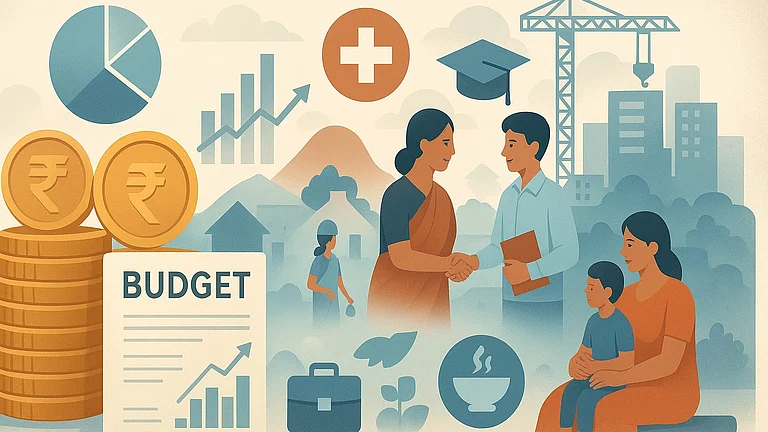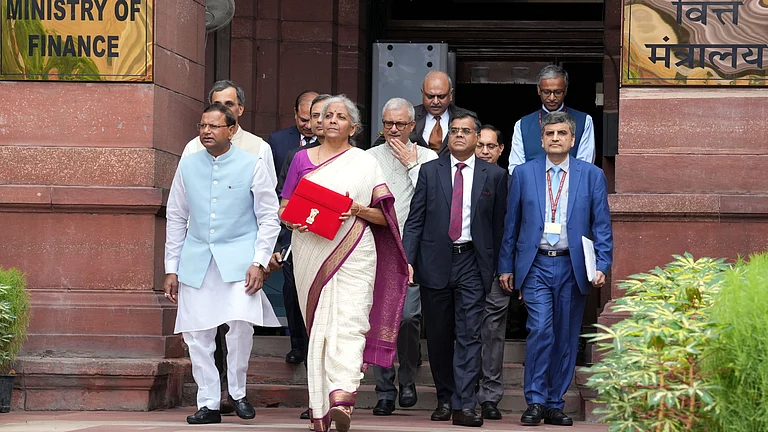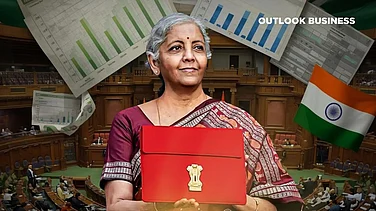As the nation awaits the presentation of Budget 2024-25, the health insurance industry looks toward measures that can support the deeper penetration of insurance for the population at scale. One such expectation is the waiver of GST on health insurance premiums. When you pay a premium on your health insurance plan, 18 per cent of this amount goes to the government as tax.
“Reducing the 18 per cent GST on health insurance premiums would provide much-needed relief to middle-income and senior citizens, improving access to quality healthcare. This move will significantly boost insurance penetration nationwide by enhancing affordability,” says Indraneel Chatterjee, Co-founder of RenewBuy.
Adding to this, Krishnan Ramachandran, MD & CEO of Niva Bupa Health Insurance states that the current rate of GST on health insurance premiums makes it expensive and hinders the inclusion of OPD benefits for the insured. “Lowering the GST rate will support Irdai’s vision of universal insurance coverage by 2047,” he adds.
Making insurance affordable through tax incentives!
Health insurance is not an expense, but an investment to secure the future and health of a family. “Despite the rising medical inflation, the government has not increased the range of deductions over the years,” remarks Chatterjee.
“We expect the budget to consider creating a separate section for tax deduction on premium paid towards life insurance which would be beneficial to the insurance buyer. This would also enable a more rational segregation of investor’s funds into long-term and short-term kitties. Additionally, the budget may consider rewarding insurance buyers with a lower GST rate,” states Subhrajit Mukhopadhyay, Executive Director, Edelweiss Life Insurance.
Currently, policyholders can claim tax deductions of up to Rs 25,000 for parents under 60 and Rs 50,000 for those over 60 under Section 80D of the Income Tax Act (Old Tax Regime).
The industry experts request that these limits be increased to Rs 50,000 and Rs 1 lakh respectively, to further incentivize health insurance coverage for the elderly. “There are also calls to extend tax exemptions to dependent family members like siblings. Moreover, the insurance sector has highlighted the need to link the Section 80D tax deduction limit to inflation and revise it periodically,” says Chetan Vasudeva, Senior Vice President of Business Development at Elephant.in, an online insurance platform for corporate employees and businesses.
Such an increase in dedication would ensure the tax benefits keep pace with the rising cost of health insurance premiums.
GST Waiver for MSMEs to encourage insurance for employees
“The govt should offer GST relief on health insurance to MSMEs as current regulations hinder their ability to offer Group Health Insurance to their workforce,” says Tarun Mathur, Co-founder and CBO, Policybazaar.
“If the government extends tax incentives to companies, especially small and medium enterprises, to offer health insurance to their employees - it could help boost insurance penetration in the country, which currently stands at just over 2 per cent of GDP,” Vasudeva adds.
MSMEs usually rely on employee benefits like Group Health Insurance to attract and retain talent. The existing GST regulations create a substantial burden because MSMEs cannot claim input credit for the GST paid on employee health insurance premiums. “Although a total waiver may not be feasible for all businesses, the government could consider providing some relief to MSMEs,” Mathur comments.
Speaking to Outlook Money, Vasudeva further lists the following ways in which the government can make health insurance more accessible for middle-class citizens:
1. Expanding eligibility for premium tax credits under the Affordable Care Act, which currently provides subsidies to lower-income individuals and families to help pay for health insurance premiums. Raising the income thresholds for eligibility or increasing the generosity of the credits could make coverage more attainable.
2. Introducing tax-advantaged health savings accounts (HSAs) that allow individuals to set aside money on a pre-tax basis to pay for medical expenses, including premiums. Expanding the availability and contribution limits for HSAs could further incentivise health insurance enrolment.
For middle-class people, the reduction in GST could mean significant savings. While health insurance premiums, a recurring expense, can strain monthly budgets, lowering the GST rate would reduce the overall cost of these premiums, making health insurance more affordable. A GST cut would directly reduce the financial burden, financial burden of senior citizens too who face higher health insurance premiums due to increased age-related risks.































